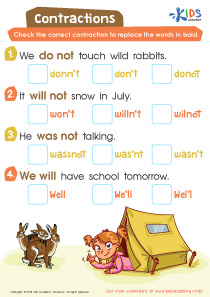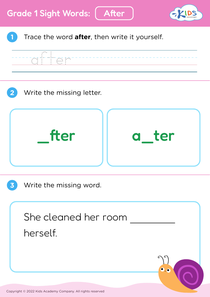Mental math practice Grade 1 Addition Worksheets
5 filtered results
-
From - To
Enhance your first grader's math skills with our engaging Mental Math Practice Grade 1 Addition Worksheets! Designed to promote quick thinking and improve addition fluency, these worksheets feature a variety of fun exercises and problems tailored for young learners. Encourage independent problem-solving and critical thinking as students practice addition without relying on calculators or outside help. Each purposeful activity supports knowledge retention and builds confidence in math abilities. Perfect for classroom use or homeschooling, our Mental Math worksheets make learning enjoyable while laying a strong foundation in basic arithmetic concepts. Download and watch your child’s math skills flourish!
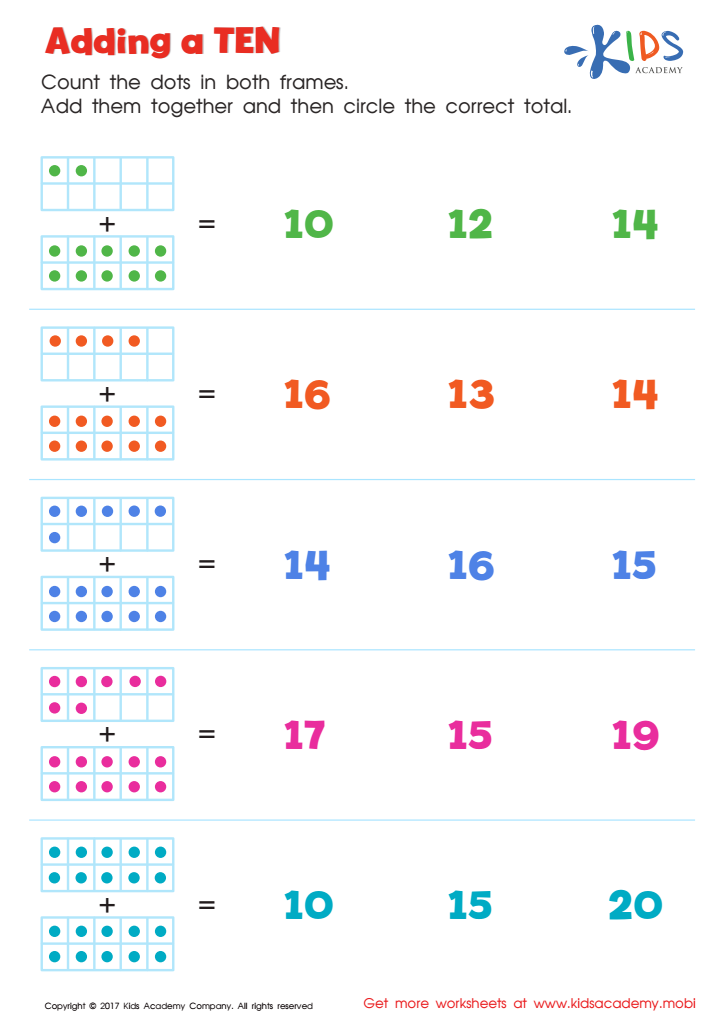

Adding a Ten Worksheet
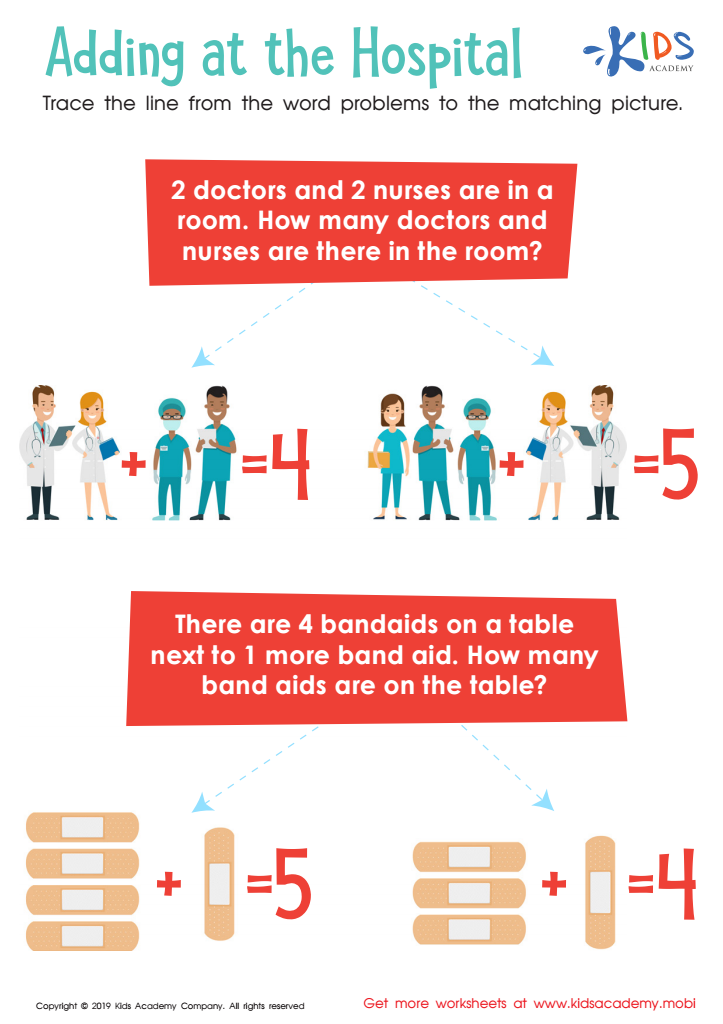

Adding at the Hospital Worksheet


Tricky Problems Worksheet: Part 2
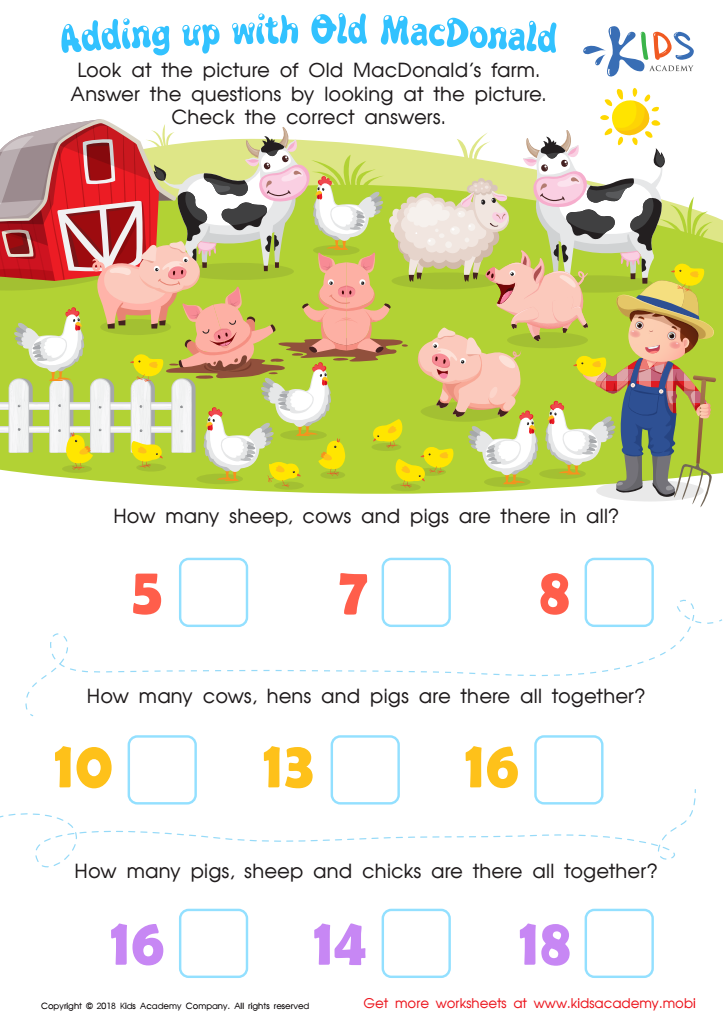

Adding Up with Old MacDonald Worksheet
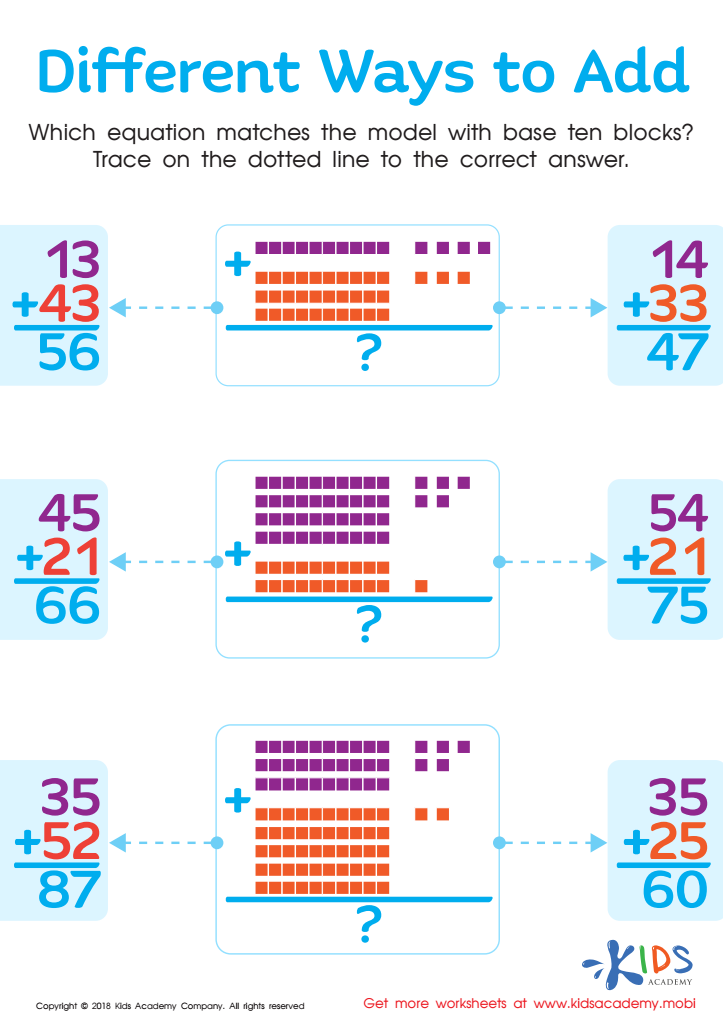

Different Ways to Add Worksheet
Mental math practice, particularly in Grade 1 addition, is crucial for young learners. First and foremost, it helps build a strong foundation for mathematical understanding. Early exposure to mental math promotes number sense, empowering students to comprehend the concepts of addition intuitively rather than by relying on physical objects or external aids. This reinforces cognitive flexibility and fosters problem-solving skills that they will utilize as they progress through their education.
Moreover, practicing mental math enhances students' confidence and reduces math anxiety. When children can quickly and accurately perform calculations in their heads, they develop a positive attitude towards math, viewing it as an enjoyable challenge rather than a daunting task. This confidence can lead to increased participation in class, which is vital for effective learning.
Furthermore, regular practice of mental math supports the development of critical thinking skills. It encourages children to analyze problems and make connections among numbers, thus cultivating logical reasoning capabilities.
Lastly, parents and teachers who emphasize mental math practice can help students establish essential study habits early on, ensuring they remain engaged and motivated to learn as their mathematical skills grow. Ultimately, the benefits form a basis for success in both academics and everyday life.
 Assign to My Students
Assign to My Students













